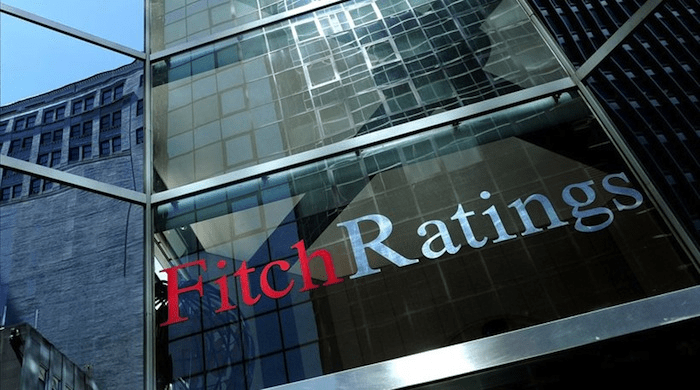Ghana’s effective loss of access to international markets increases risks to its ability to meet medium-term financing needs, Fitch Ratings, has said.
The international ratings agency in its latest report said Ghana has sufficient liquidity to cover near-term debt servicing without market financing, but there is a danger that non-resident investors in the local bond market could sell their holdings, particularly if confidence in fiscal consolidation weakens, placing significant downward pressure on its reserves.
Ghana issued $3 billion in Eurobonds in March 2021, and received $1 billion in International Monetary Fund Special Drawing Rights. The government had indicated plans to issue a further US$1 billion on international markets this year, but abandoned these plans in October 2021, stating current market conditions as reason.
“The widening of Ghana’s spreads reflects growing international investor risk aversion, partly because markets now expect US monetary tightening to come sooner than previously anticipated, making it harder for vulnerable sovereigns to attract external financing”, Fitch Ratings said.
“Concerns about the government’s commitment to fiscal tightening, ahead of the release of the 2022 budget in mid-November, may also have contributed to rising yields. Fitch already projects a more gradual improvement in the public finances than the 2021 budget’s medium-term framework, which saw the deficit falling to 5.5% of GDP by 2023”, it pointed
“We forecast the deficit, on a cash basis, to narrow to 7.7% of GDP in 2023 from 14% in 2020, with the general government debt/GDP ratio continuing to rise through 2022-2023, before plateauing in subsequent years below 90%”, it pointed out.
Medium-term outlook for public finances remains challenging
The international ratings agency said the medium-term outlook for public finances remains challenging, and problems have been exacerbated by the Covid-19 pandemic.
It stressed further that revenue is structurally low and interest costs very high, adding “we project general government interest expense at almost 47% of revenue in 2022, well above the median for ‘B’ rated sovereigns of 11%.”.
Latest Stories
-
Don’t bring soldiers to polling stations – Martin Kpebu
4 mins -
Ogyeahohuo Yaw Gyebi II retained as President of National House of Chiefs
19 mins -
Embrace ICT to fit in digital world – Ho NYA boss to youth
1 hour -
We don’t want armed soldiers at polling stations – Tanko-Computer
1 hour -
Drama as police corner armed robbers inside locked forex bureau at Lapaz
1 hour -
Nigerian-born conquers childhood hearing loss to become KNUST’s overall best graduating student
2 hours -
ECOWAS Court orders compensation for violations against New Force’s Shalimar Abbiusi
2 hours -
Dreams FC denies allegations of attempting to sign Najeeb Yakubu
3 hours -
Election 2024: ‘Right to free and fair elections non-negotiable’ – Akufo-Addo
3 hours -
Kurt Okraku took out my passport from the U23 squad that travelled to Japan – Najeeb Yakubu alleges
3 hours -
Where hope fails: Ghana’s decaying home for the destitute
3 hours -
NDC Mining Committee for 2024 campaign refutes allegations of recruiting thugs for elections
4 hours -
Traction Control: A lifesaver with an off switch? Here’s why it exists
4 hours -
I don’t need anyman to woo me with money – Miss Malaika 2024 winner refutes pimping claims
4 hours -
”Kurt Okraku sabotaged my national team career because I refused to sign with Dreams FC” – Najeeb Yakubu
4 hours

